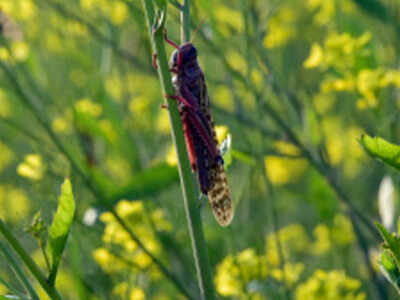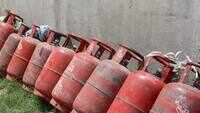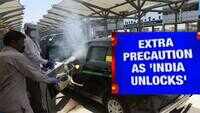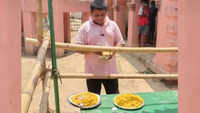
PATNA/ BHAGALPUR: Fears of likely locust attack during paddy sowing and transplantation is haunting the Bihar districts with common border with Uttar Pradesh (UP) and even other vulnerable districts like Bhagalpur. UP has already suffered the locust menace that came from Rajasthan through Pakistan.
Reports said from UP, the pests have veered towards Madhya Pradesh (MP). However, the fear of deadly pest attack to vegetables, crops and leaves of trees has been persisting in Bihar and Jharkhand. It has been further compounded by the threat to paddy sowing season. Bihar agriculture department has alerted the districts concerned and even the scientists at Bihar Agriculture University (BAU), Bhagalpur, and Krishi Vigyan Kendras.
The use of traditional methods like drumming drums and ‘nagaras’ as well as beating of plates and tin cans to create noise to scare away the locusts have been advised. The advisory has also asked the district agriculture and other officials to procure pesticides and chemicals and keep tractors fitted with spraying machines as well as fire tenders and drones in readiness.
Incidentally, swarm of locusts has not reached Bihar yet, but the farmers are fearful as the laying of eggs and breeding also persists till June-July, the peak of paddy sowing and transplantation season.
Expressing serious concern, BAU issued an advisory to spray recommended pesticides -- ‘Lambda-cyhalothrin 5% EC’ (1 millilitre in 1 litre of water), Chlorpyrifos 20% EC (2.5ml to 3.0ml in 1 litre), Fipronil 5% EC (1ml in 1 litre), Deltamethrin 2.8% EC (1ml to 1.5ml in 1 litre) — besides using drones on the field to protect against the locust attack.
Scientist and entomologist Dr Ramanuj Vishwakarma at BAU said one locust swarm is estimated to breed 4-5 crore in 1km area under attack, requiring large spray machines. He said April-May every year are fit for reproduction of the locusts and females in the swarm needed huge amount of food to eat and get the eggs developed and later on lay on plants.
The locust attack on the farms occurs in the evening when they eat crop leaves and tender plant tissues and rest at night on the farms before flying away to other areas after sunrise.
BAU entomologist Prof S N Ray said chances of locust attack were in the bordering areas of Jharkhand, UP and MP, not in eastern Bihar. Bhagalpur district agriculture officer Krishna Kant Jha said, “We are on high alert and have made all preparations.”
Kaimur DM Dr Nawal Kishor Choudhary said till now, locusts have not entered his district. “I contacted officials in UP. They said the locusts had turned towards MP, but we are not taking chances,” he said, adding that farmers in the blocks bordering UP have also been alerted about the use of traditional and modern methods to scare away or kill the pests.
Reports said from UP, the pests have veered towards Madhya Pradesh (MP). However, the fear of deadly pest attack to vegetables, crops and leaves of trees has been persisting in Bihar and Jharkhand. It has been further compounded by the threat to paddy sowing season. Bihar agriculture department has alerted the districts concerned and even the scientists at Bihar Agriculture University (BAU), Bhagalpur, and Krishi Vigyan Kendras.
The use of traditional methods like drumming drums and ‘nagaras’ as well as beating of plates and tin cans to create noise to scare away the locusts have been advised. The advisory has also asked the district agriculture and other officials to procure pesticides and chemicals and keep tractors fitted with spraying machines as well as fire tenders and drones in readiness.
Incidentally, swarm of locusts has not reached Bihar yet, but the farmers are fearful as the laying of eggs and breeding also persists till June-July, the peak of paddy sowing and transplantation season.
Expressing serious concern, BAU issued an advisory to spray recommended pesticides -- ‘Lambda-cyhalothrin 5% EC’ (1 millilitre in 1 litre of water), Chlorpyrifos 20% EC (2.5ml to 3.0ml in 1 litre), Fipronil 5% EC (1ml in 1 litre), Deltamethrin 2.8% EC (1ml to 1.5ml in 1 litre) — besides using drones on the field to protect against the locust attack.
Scientist and entomologist Dr Ramanuj Vishwakarma at BAU said one locust swarm is estimated to breed 4-5 crore in 1km area under attack, requiring large spray machines. He said April-May every year are fit for reproduction of the locusts and females in the swarm needed huge amount of food to eat and get the eggs developed and later on lay on plants.
The locust attack on the farms occurs in the evening when they eat crop leaves and tender plant tissues and rest at night on the farms before flying away to other areas after sunrise.
BAU entomologist Prof S N Ray said chances of locust attack were in the bordering areas of Jharkhand, UP and MP, not in eastern Bihar. Bhagalpur district agriculture officer Krishna Kant Jha said, “We are on high alert and have made all preparations.”
Kaimur DM Dr Nawal Kishor Choudhary said till now, locusts have not entered his district. “I contacted officials in UP. They said the locusts had turned towards MP, but we are not taking chances,” he said, adding that farmers in the blocks bordering UP have also been alerted about the use of traditional and modern methods to scare away or kill the pests.

Coronavirus outbreak
Trending Topics
LATEST VIDEOS
City
 Watch: Video proof of Pak diplomat spying with a decoy sent by the Indian Intelligence Agency
Watch: Video proof of Pak diplomat spying with a decoy sent by the Indian Intelligence Agency  Unlock 1.0: Non-subsidized LPG gas price hiked by Rs 11.50 in Delhi
Unlock 1.0: Non-subsidized LPG gas price hiked by Rs 11.50 in Delhi  Covid-19 crisis and lockdown: Delhi CM Arvind Kejriwal seeks public suggestions
Covid-19 crisis and lockdown: Delhi CM Arvind Kejriwal seeks public suggestions  India unlocks: Guidelines issued to taxi services operating to and from Delhi Airport
India unlocks: Guidelines issued to taxi services operating to and from Delhi Airport
More from TOI
Navbharat Times
Featured Today in Travel
Quick Links
Kerala Coronavirus Helpline NumberHaryana Coronavirus Helpline NumberUP Coronavirus Helpline NumberBareilly NewsBhopal NewsCoronavirus in DelhiCoronavirus in HyderabadCoronavirus in IndiaCoronavirus symptomsCoronavirusRajasthan Coronavirus Helpline NumberAditya ThackerayShiv SenaFire in MumbaiAP Coronavirus Helpline NumberArvind KejriwalJammu Kashmir Coronavirus Helpline NumberSrinagar encounter
Get the app





